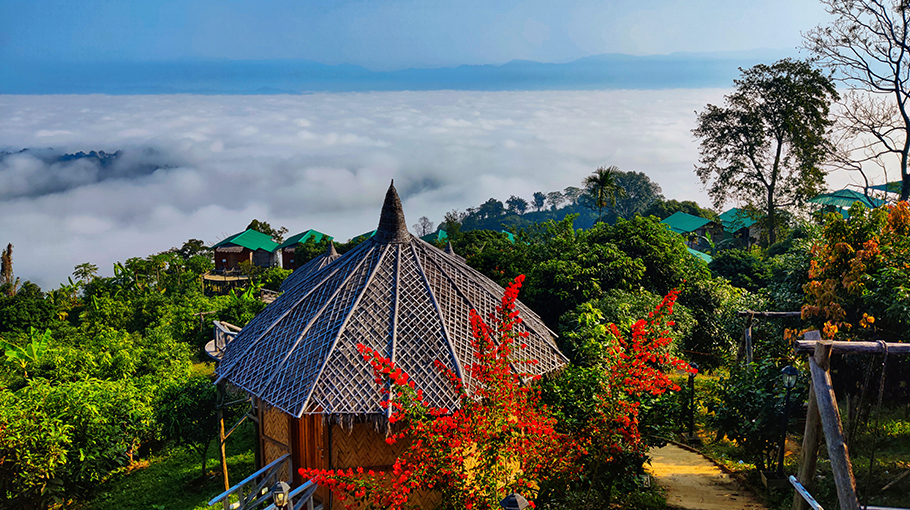Plan to raise facilities in the hills

The government has planned a project to increase the facilities in hilly areas including Sajek to attract more tourists.
For this, the project titled ‘Expansion and development of water supply and sanitation management in rocky areas of different upazilas of Rangamati district including Sajek tourist area’ has been proposed in the Planning Commission, an official of Planning Commission said.
The total cost of its implementation has been estimated at Tk 48.31 crore. If approved, the Department of Public Health Engineering (DPHE) will implement it by June 2026.
Planning Minister MA Mannan said, “Water will be supplied to the Sajek tourist area through a pipeline. Sanitation system will be developed
by constructing public toilets in social institutions.”
According to the project proposal, Sajek Valley is one of the most popular tourist spots in Bangladesh situated among the hills of the Kasalong range of mountains in Sajek union, Baghaichhari Upazila in Rangamati District.
It is the largest union in the country, with an area of 702 square miles. Sajek Valley is also known as the Moon of Rangamati. About 2,000-2,500 tourists come to Sajek every day. About 8,000 to 10,000 tourists visit here during weekends and other holidays. There are more than 150 hotels and resorts here. Around 4000 people live permanently in this union with local residents and hotel resort operators.
There is no water supply system in this scenic Sajek Valley. The hotels or resorts fetch 1000-2000 liters of water by jeep from about 2500 feet below. The water is stored in the tanks installed in the hotel to meet the daily water needs of the tourists. And the process of bringing this water is also very expensive and difficult. Moreover, during the dry season, the flow of water decreases at once. And during monsoons the water is very turbid. The drinking water needs of thirsty tourists and local people are met with water carried in jeeps without any kind of purification. Tourists have to rely entirely on bottled water for drinking. The local people meet the demand for drinking water by digging holes in the mountains and collecting water.Using this water is very risky and dangerous.
Due to the geographical conditions, tube well installation is not successful as most of the areas in Rangamati and Sajek are rocky. The availability of water from both surface and surface sources is very insufficient to supply water to Sajek. Installation of tube wells is very difficult and expensive due to rocky hard rock layers. Moreover, in most cases, installation of tube wells is not successful due to non-availability of water-borne sand layers. The Sajek valley is completely surrounded by mountains and being very high, the water level is very low.
Under the project, the estimated cost for laying a 12 km transmission pipeline under the proposed project is Tk 6.69 crore. An estimate of Tk 2.90 crore has been made for laying six kilometers of distribution pipelines of various diameters. Apart from this, 10 type-B public toilets have been proposed under this project.
The unit cost of each type-B toilet is estimated at Tk 10.32 lakh. These toilets will be constructed in the public importance areas in the Development Project Proposal (DPP).
The cost of setting up six experimental tube wells under the project has been estimated at Tk 12.24 lakh. The cost of setting up three tube wells has been estimated at Tk 83.73 lakh. Three kilometers of RCC drain will be constructed through this project. Where the construction cost per kilometer has been estimated at 1. 17 lakh. Besides, Tk 22.80 crore has been proposed for the construction cost of 61 GSF under this project. These issues will be discussed in detail in the PEC meeting.
According to sources, a mini treatment plant will be set up at Sajek. After that water can be pumped from the well that is there and supplied to the treatment plant through the pipe line with a few boosting pumps. On the other hand, since the flow of water in the scheme decreases during the dry season, drinking water needs will be met by installing pilot wells and producer wells to meet the water demand during that time. On the other hand, arrangements will be made to supply water through pipe lines from natural springs in rocky areas of Rangamati district.




